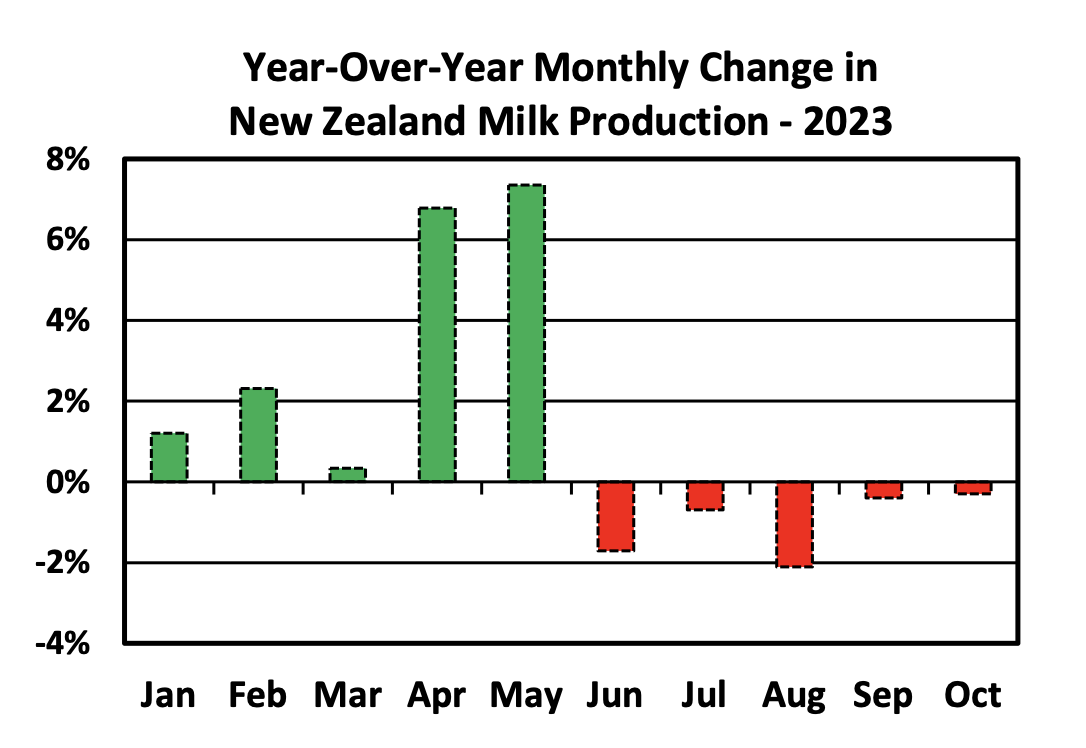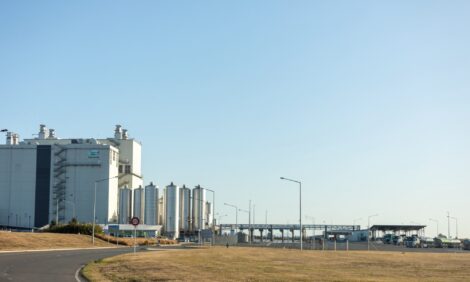



NZ milk production projected to marginally decline in 2024
Farmers currently face several challenges, including rising debtNew Zealand milk production is projected to experience a marginal decline to 21.2 million tons in 2024, as dairy farmers are faced with several challenges, according to a recent USDA World Markets and Trade report for dairy.
Factors most prominently contributing to this outlook include the impact of El Niño weather patterns, a reduction in farmgate milk prices, persistent on-farm inflation, and a shrinking dairy herd. New Zealand's pastoral-based production system heavily relies on adequate levels of rainfall to build feed reserves for spring. Forecast dry conditions during the summer months (December-February), according to the most recent seasonal climate outlook released by the National Institute of Water and Atmospheric Research, are expected to hamper pasture growth and the accumulation of feed reserves, particularly in the North Island, which constitutes 57% of the dairy herd.

Farmgate milk prices are also under pressure, with Fonterra recently reducing the mid-point payment being offered to producers for milk solids to NZ$6.75. This represents a 27% decline from the previous year and is NZ$1.00 less than the Winter offer. This coincides with the highest on-farm inflation in 40 years, affecting all farm inputs from energy to feed to labour.
Most prominent among heightened costs are interest rates on farm debt, propelled by significant hikes by the New Zealand Reserve Bank (NZRB) in the official cash rate (the equivalent of the US Federal Reserve's federal funds rate), which has doubled over the last 12 months.
Notably, 80% of farming term liabilities in New Zealand are floating, subject to re-indexing based on the official cash rate every six months.
While the RBNZ has declared a pause in rates after its latest hike in May 2023, historically, there is a 12-month lag in central bank interest rate changes and economic behaviour, and, therefore the repercussions of rate hikes are expected to reverberate throughout 2024.



